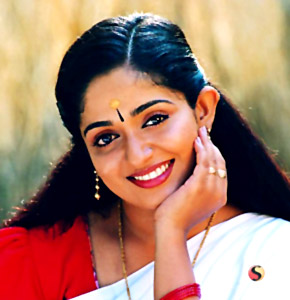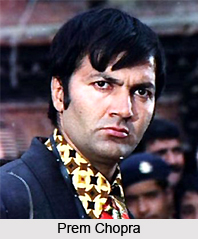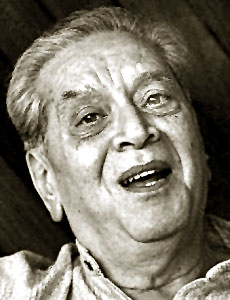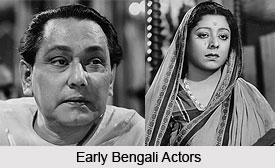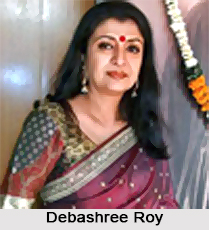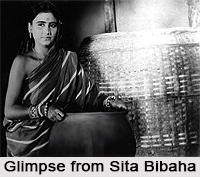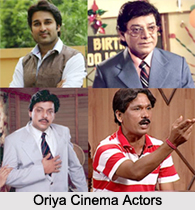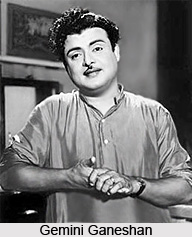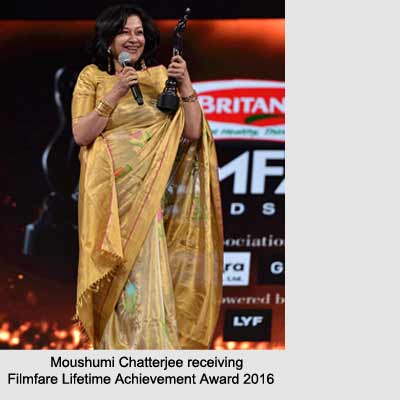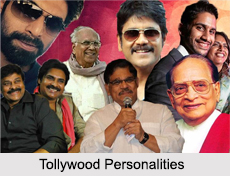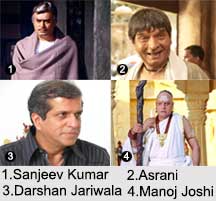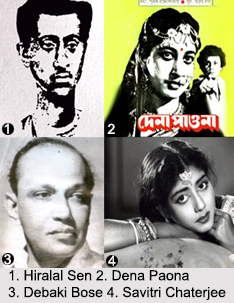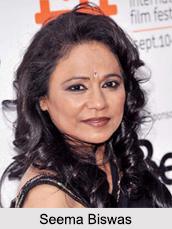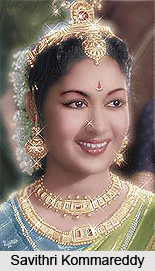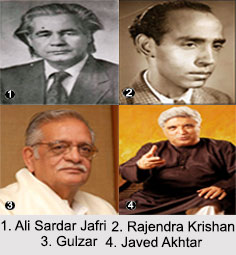 Music and songs is an indispensable facet of Indian Cinema and Indian movies. Bollywood and the regional film industries of India have gifted and dexterous poets, litterateurs and lyricists who with their compositions give the multifarious film songs their very essence and meaning. A good number of these lyricists have also worked as screenwriters and written the screenplay for films.
Music and songs is an indispensable facet of Indian Cinema and Indian movies. Bollywood and the regional film industries of India have gifted and dexterous poets, litterateurs and lyricists who with their compositions give the multifarious film songs their very essence and meaning. A good number of these lyricists have also worked as screenwriters and written the screenplay for films.
Lyricists of Hindi Cinema
By the time Hindi Cinema entered the 1940s, the tradition of music and songs had already gripped films. Munshi Arzoo Lucknowi and Kavi Pradeep emerged as credible and popular lyricists during the period, along with Kidar Sharma and D. N. Madhok. Kidar Sharma"s written songs for "Chitralekha" (1941) are immortal numbers set to music of Ustad Jhande Khan. In 1941, Munshi Arzoo Lucknowi wrote for the film "Doctor", to tunes composed and sung by Pankaj Mullick. The numbers are in remembrance even today. Kavi Pradeep was an acclaimed poet and songwriter, best known for his patriotic composition "Aye Mere Watan Ke Logo". A few more lyricists who came into the limelight in the early 40s were Qamar Jalalabadi, Pandit Bhushan, Tanvir Naqvi and Pandit Narendra Sharma. Pandit Sharma made a distinct place for himself in the later years. He wrote the lyrics for "Hamari Baat" and "Jwar Bhata", alongside composer Anil Biswas.
By 1945, a new group of lyricists had come to the forefront, the likes of Bharat Vyas, Josh Malihabadi, Akhtar ul Iman, Majaz, Pandit Mukhram Sharma and Nakshab. These lyricists constituted a group of progressive writers who hailed from the field of literature. By the end of 1945, a few more names came up among lyricists, most of whom had association with Indian Peoples` Theatre Association (IPTA). Notable among these were Prem Dhawan, Ali Sardar Jafri, Majrooh Sultanpuri, Vishwamitra Adil, Gopal Singh Nepali, Manmohan Anand and Zia Sarhadi. Majrooh Sultanpuri wrote some popular numbers in "Mr. and Mrs. "55", like "Jaane Kahan Mera Jigar Gaya Ji", in "C.I.D." like "Ae Dil Hai Mushkil Jeena Yahan", "Sar Par Topi" from "Tumsa Nahin Dekha" and "Maana Janab Ne Pukara Nahin" from "Paying Guest".
The most significant lyricist post independence was Rajendra Krishan, who arrived with the film "Zanjeer" (1947). For the next 3 decades, he became the most sought after lyricist. His songs from the film "Badi Behen" (1949) encompassed simple non-poetic verses, like "Chup Chup Khade Ho Zaroor Koi Baat Hai", "Chale Jana Nahin Nain Mila Ke" and "Likhdi Meri Taqdeer Mein Barbaadi Likhnewale". In 1949, Raj Kapoor introduced two new lyricists in his film "Barsaat", the eminent Shailendra and Hasrat Jaipuri. Shailendra, a poet of finesse and calibre, understood the difference between a poem and a lyric. A poet of the masses, he composed the lyrics for "Mera Joota Hai Japani", "Mudh Mudh Ke Na Dekh" and "Dil Ka Haal Sune Dilwala" from "Shree 420". Simple words that made sense and simple music were the forte of Hasrat Jaipuri, whose biggest hits include a love letter he had written to a girl he liked, which Raj Kapoor later used in "Sangam" (1964), as "Yeh Mera Prem Patra Padh Kar".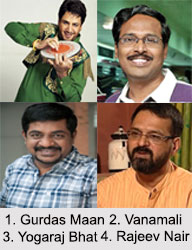
Sahir Ludhianvi, a renowned Urdu poet, joined the industry in 1948. Regarded the only film lyricist whose songs became popular for his words, which were different from others and phonetically very musical. His best work was alongside S. D. Burman. Sahir`s written songs carried the dignity of poetry. His songs from "Pyaasa" (1957), like "Jaane Woh Kaise Log", "Yeh Duniya Agar Mil Bhi Jaye" are popular even today. Another remarkable poet from Urdu Literature, Kaifi Azmi, joined the tide of rising lyricists. He shot to limelight with Guru Dutt`s 1952 classic "Kaagaz Ke Phool", working with S. D. Burman in composing popular numbers "Dekhi Zamane Ki Yaari", "Waqt Ne Kiya Kya Haseen Sitam" and others.
The period of 60s and 70s witnessed the emergence of one of the most prolific lyricists of Indian Cinema, Anand Bakshi. His songs topped the charts year after year, in a career spanning over 4 decades. From Master Bhagwan`s "Bhala Aadmi", his first film, to his songs in "Taal", "Bulandi" and "Pyaar Ishq Aur Mohabbat", Anand Bakshi retained his prominence till his death in 2002.
The most esteemed lyricist of the contemporary time, Gulzar, brought depth and freshness to lyrics that became his hallmark, in terms of simple, soul-stirring language and a revolutionary usage of the common man`s idiom. His first film song, "Mora Gora Ang Laile" from "Bandini" (1963), became an instant hit and is regarded among the classics. In "Masoom" (1983), he wrote the melancholic "Tujhse Naraz Nahin Zindagi" while "Dil Se.." (1998) saw him adapt to the boisterous "Chaiyyan Chaiyyan". In films "Satya" (1998) and "Aks" (2001), Gulzar broke new grounds in lyric composition, with songs like "Goli Maar Bheje Mein".
The last quarter of the 20th century saw the emergence of the much recognised screenwriter and lyricist Javed Akhtar. He garnered attention with his first song, "Dekha Ek Khwab" from "Silsila" (1981). Javed Akhtar wrote poetry of every hue and colour. His song "Ek Do Teen" from "Tezaab" (1988) became a chartbuster. In "1942: A Love Story", Javed Akhtar`s "Ek Ladki Ko Dekha" not only earned him his first Filmfare Award as a lyricist, but gave to the conventionally noisy Hindi film songs, a mellifluous mood. Today, Javed Akhtar is the name that echoes in the mind of every industry person and the audience, when it comes to Bollywood lyrics. In the 21st century, his lyrics have made up the successful hit tracks of "Dil Chahta Hai", "Kal Ho Naa Ho", "Jodhaa Akbar", "Rock On" and numerous others, wooing and appealing to audiences of every age.
The other popular lyricists of contemporary times are Sameer, Prasoon Joshi and Irshad Kamil. Sameer, the son of veteran lyricist Anjaan, carries with himself an ease of words that makes his songs very appealing to the listeners. The most popular songs of the 90s were written by Sameer, for films like "Saajan", "Raja Hindustani" and "Kuch Kuch Hota Hai". The 21st century witnessed the emergence of Prasoon Joshi, who wrote the lyrics for popular films like "Hum Tum", "Fanaa", "Rang De Basanti", "Taare Zameen Par", "Delhi 6" and "Bhaag Milkha Bhaag". His award-winning repertoire includes the songs "Chand Sifarish" from "Fanaa" (2006), "Maa" from "Taare Zameen Par" (2007) and "Zinda" from "Bhaag Milkha Bhaag" (2013). The very soulful and touching lyrics of Irshad Kamil have given emotion to the songs of "Jab We Met", "Love Aaj Kal", "Rockstar", "Highway" and "Tamasha", from where the ones which earned him accolades include "Aaj Din Chadheya", "Nadaan Parindey" and "Agar Tum Saath Ho".
Lyricists of Regional Cinema
The multifaceted regional cinema of India has a gamut of lyricists whose words give the songs their very flavour and meaning. Lyricists of Bengali Cinema include Gobinda Halder, Gauriprasanna Mazumder and Rakesh Kumar Tripathi. Punjabi Cinema has seen the likes of Gurmel Singh Dhillon, Deepak Jaitoi, Gurdas Maan and Manpreet Tiwana. The lyricists of Tamil Cinema include Manachanallur Giridharan, Anthony Daasan and Vivek and Telugu Cinema encompasses the likes of J. K. Bhairavi, Chandrabose, Krishna Chaitanya, Cingireddy Narayana Reddy and Vanamali. Lyricists of Kannada Cinema are Hunsur Krishnamurthy, Yogaraj Bhat, Geethapriya and V. Manohar among others. The Malayalam film industry has seen noted lyricists like Rajeev Nair, P. Bhaskaran, Nadirshah and Dinanath Puthenchery.







